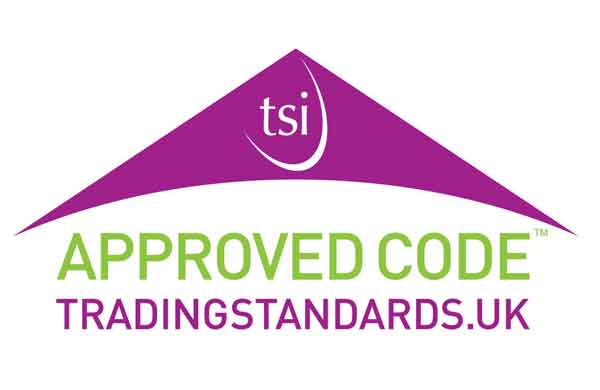Initially introduced to Parliament in May 2023, the Renters’ Rights Bill was subsequently shelved. However, with a new government in power, the bill was reintroduced during the King’s Speech in July 2024. This legislation is designed to enhance tenant protections while clearly defining landlord responsibilities. Prepare for significant changes ahead.
The Renters’ Rights Bill is set to overhaul the private rental sector, making it more tenant-friendly while assigning clear duties to landlords. One of the most significant changes is the abolition of Section 21 of the Housing Act of 1988, which currently allows landlords to evict tenants without providing a reason. The new provisions will introduce specific grounds for possession, allowing landlords to reclaim their properties under certain conditions. It’s worth noting that since only around 6% of tenants are currently evicted under Section 21, the impact on landlords should be minimal.
What is the Renters’ Rights Bill?
Previously known as the Renters’ Reform Bill, the legislation was originally on the UK government’s agenda in 2019. After the Labour Party’s victory in the general election, it was rebranded as the Renters’ Rights Bill, emphasising enhanced tenant protections. The bill now prevents landlords from evicting tenants without a valid reason and restricts rent increases to once per year. Additionally, it aims to eliminate rent bidding wars between landlords and tenants.
A major reform under the Renters’ Rights Bill is the abolition of no-fault evictions under Section 21 of the Housing Act of 1988. Landlords will now be required to provide a valid reason for eviction and will be prohibited from evicting tenants facing homelessness or financial hardship. Instead, landlords can terminate a tenancy early if they have a legitimate reason under Section 8 of the Housing Act of 1988.
The bill also strengthens tenant protections by outlawing rental bidding wars and introducing Awaab’s Law, which sets clear legal expectations for landlords regarding property condition and maintenance timelines.
Key Provisions of the Bill
In addition to eliminating no-fault evictions, the Renters’ Rights Bill includes several other measures to improve the UK’s rental environment. Here are some of the key changes:
1. New Grounds for Gaining Possession
Landlords now face new restrictions when selling or moving into their rental properties. They cannot use these grounds within the first six months of a tenancy, providing tenants with greater security. Additionally, new provisions address repeated rent arrears, requiring mandatory eviction for tenants who have been in arrears for two months or more on three separate occasions within a three-year period.
2. Tenants’ Right to Keep Pets
Tenants can now request permission to keep a pet, and landlords must consider the request. While landlords can refuse, tenants have the right to challenge this decision. If a dispute arises, it can be resolved through the ombudsman or the courts. Landlords concerned about property damage can require tenants to obtain pet insurance, ensuring any damage is covered.
3. Advance Notice for Rent Increases
The bill limits rent increases to once per year, with landlords required to give two months’ notice. This provision replaces the current process under Section 13 of the Housing Act. If tenants pay rent in advance and the tenancy ends early, landlords must refund the excess. The bill also aims to limit the amount of rent landlords can demand upfront.
4. Property Portal for Landlords and Tenants
A new digital property portal will be introduced, helping landlords meet their legal obligations and facilitating better communication with tenants. This tool will enable informed decision-making for both parties and assist local councils in tracking non-compliant landlords.
5. Decent Homes Standard for Private Rented Sector (PRS)
The Decent Homes Standard will now apply to all privately rented properties, requiring them to meet basic criteria, including adequate noise insulation, absence of health and safety hazards, and proper kitchen and bathroom facilities. Landlords failing to comply may face penalties of up to £30,000 or a banning order, and tenants could reclaim up to 24 months of rent.
6. Ombudsman for Dispute Resolution
The bill introduces an ombudsman to provide a fair, impartial, and transparent process for resolving disputes between landlords and tenants. This service, which applies to all privately rented properties, can require landlords to issue apologies, provide more information, or pay compensation of up to £25,000.
Impact on Tenants
The Renters’ Rights Bill is designed to offer greater protection to tenants, addressing issues such as rent control, eviction procedures, and living conditions. Key impacts include:
- New Eviction Rules
The abolition of Section 21 will prevent landlords from evicting tenants without a valid reason, providing tenants with greater security.
- Stabilized Rents
The bill aims to make renting more affordable and predictable by limiting rent increases and ending rental bidding wars. However, the effectiveness of these measures remains uncertain, as similar regulations in Scotland and Northern Ireland have not always yielded the desired results.
- Ombudsman Rule
The introduction of the ombudsman will further protect tenants’ rights by offering a fair resolution process for disputes with landlords.
Overall, the bill offers a positive shift for tenants, providing much-needed stability and protection in the rental market.
Impact on Landlords
While many landlords may feel they are losing control over their properties, the Renters’ Rights Bill also includes provisions to protect their interests:
- Eviction with Cause
Although Section 21 no-fault evictions are being abolished, landlords can still evict tenants for valid legal reasons.
- Pet Insurance Requirements
Landlords can require tenants with pets to obtain insurance, ensuring any damage is covered.
- Simplified Grounds for Possession
The process for landlords to reclaim their properties will be streamlined and faster.
- Ombudsman Protections
The ombudsman will also safeguard landlords’ rights in disputes with tenants.
In summary, the Renters’ Rights Bill aims to create a fairer, more transparent rental environment for both tenants and landlords.
Conclusion
Reintroduced as the Renters’ Rights Bill, this legislation is poised to bring significant changes to the UK’s rental market. By abolishing no-fault evictions, controlling rent increases, and enhancing tenant protections, the bill seeks to provide greater security for renters. Meanwhile, new provisions for gaining possession, a digital property portal, and the ombudsman service offer landlords continued protection and clear responsibilities. Although some landlords may feel apprehensive about the changes, the bill ultimately aims to balance the interests of both parties, creating a more equitable rental landscape.







